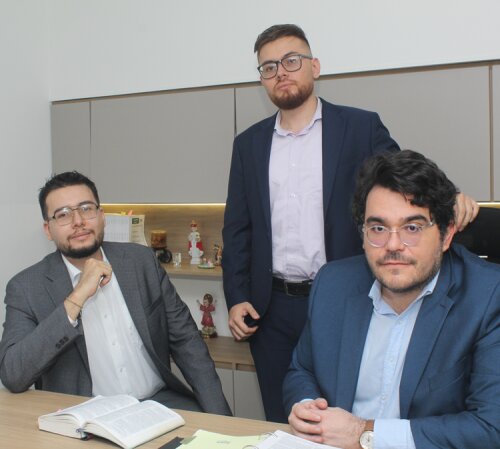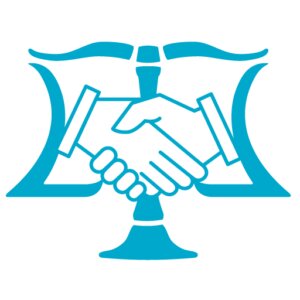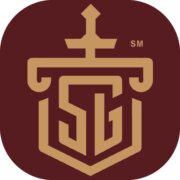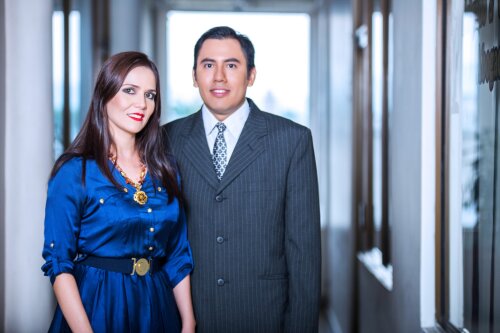Best Native People Lawyers in Bucaramanga
Share your needs with us, get contacted by law firms.
Free. Takes 2 min.
List of the best lawyers in Bucaramanga, Colombia
About Native People Law in Bucaramanga, Colombia
Bucaramanga is a city in the Santander department of Colombia and, while often known for its urban focus, it is also home to diverse communities, including Native or Indigenous Peoples. Although many Indigenous communities in Colombia reside in rural areas or reservations (resguardos), there is a significant presence of Indigenous population in and around Bucaramanga. Native People law in Colombia encompasses the recognition, protection, and advancement of Indigenous Peoples’ rights, rooted in the Constitution of 1991 and international agreements. These laws provide for the self-determination, cultural preservation, land rights, and participation of Indigenous communities in decisions affecting their interests.
Colombia recognizes over 100 Indigenous groups and guarantees certain autonomous rights, including the right to their own language, traditions, forms of governance, justice systems within their territories, and collective property rights over ancestral lands. In Bucaramanga, legal matters often involve land claims, cultural protections, discrimination, access to state services, and participation in municipal decision-making.
Why You May Need a Lawyer
There are several situations where Native People in Bucaramanga may require legal assistance. Understanding your rights and navigating the legal system can be complex, so seeking the help of an experienced legal professional is vital. Common scenarios where legal help may be needed include:
- Defending collective land rights and addressing encroachment or expropriation issues
- Asserting cultural rights or protecting sacred sites from development
- Filing or contesting actions related to discrimination or violations of human rights
- Securing access to government benefits, healthcare, and educational services
- Representing Indigenous interests in municipal planning or infrastructure projects
- Pursuing recognition of traditional authorities or legal status for Indigenous organizations
- Assisting with registration or documentation issues that may affect identity or benefits
- Addressing conflicts between Indigenous law and ordinary (state) law
Local Laws Overview
Native People in Bucaramanga are protected by various national and local legal frameworks. Key aspects of these laws include:
- Constitutional Protections: Article 7 of the Colombian Constitution recognizes and protects the ethnic and cultural diversity of the nation. Indigenous Peoples have specific constitutional rights regarding autonomy, self-governance, and land ownership.
- Collective Land Rights: Special laws, like Law 21 of 1991 (which adopts ILO Convention 169), strengthen the rights of Native People to their lands and territories.
- Legal Personality: Indigenous communities have the right to register as legal entities with their own governing bodies, enabling representation and participation in legal matters.
- Cultural and Linguistic Rights: The law protects Indigenous languages and customs, ensuring their preservation and use in relevant settings, including education and justice.
- Differentiated Justice: Indigenous communities may apply their own legal systems within their territory, provided they align with the Constitution and international human rights standards.
- Prior Consultation (Consulta Previa): Projects or policies that could affect Indigenous territories require government-conducted consultations with the affected communities before approval.
- Anti-Discrimination Laws: Legal tools exist to contest discrimination based on ethnicity or cultural identity in education, employment, or public services.
Frequently Asked Questions
Who qualifies as a Native or Indigenous Person in Bucaramanga?
A Native or Indigenous Person in Bucaramanga is someone belonging to one of Colombia’s recognized Indigenous groups, with ancestral lineage, cultural ties, or community membership, either residing in the area or having historic roots in it.
Can Indigenous communities own land collectively in Bucaramanga?
Yes, Colombian law allows for the collective ownership of land by Indigenous communities. Special land titles, called “resguardos” or reservations, can be granted, which are inalienable, unseizable, and non-transferable.
What are my rights if I believe my community’s land is being threatened?
You have the right to legal protection and can seek the intervention of authorities or courts. Immediate legal actions, like tutela (protective action), and reports to the Defensoría del Pueblo can help stop illegal actions against communal land.
Are there protections for Indigenous languages and culture in Bucaramanga?
Yes, National and local regulations protect the use and preservation of Indigenous languages and culture. Education in native languages and cultural celebrations are recognized and supported.
Can an Indigenous authority make legal decisions within Bucaramanga?
Within their jurisdiction and as recognized by law, Indigenous authorities may exercise certain legal powers. These decisions must respect the Constitution and human rights.
What is “consulta previa” or prior consultation?
It is a legal requirement for the government or companies to consult with Indigenous groups before any project or law is implemented that may impact their land, resources, or culture.
How can I report discrimination or a violation of Indigenous rights?
You can file a complaint with local authorities, the Defensoría del Pueblo, or through a tutela action in the courts. Discrimination or human rights violations are taken seriously by both local and national agencies.
Do Indigenous people in Bucaramanga have access to special healthcare or education programs?
Yes, certain legal provisions ensure prioritized or culturally appropriate access to healthcare, education, and social services for Indigenous communities.
What if there is conflict between Indigenous law and Colombian law?
Generally, Indigenous law is applied within their communities as long as it is compatible with national law and human rights standards. Conflicts may require judicial review or mediation.
Where can I get help if my community’s leadership or registration status is in question?
You should consult with local legal experts, Indigenous organizations, or government offices specializing in Indigenous affairs to resolve recognition or registration issues.
Additional Resources
If you need support or further information, the following resources can be useful:
- Regional Indigenous Councils: Local organizations representing Indigenous communities.
- Defensoría del Pueblo: The national ombudsperson’s office with branches in Bucaramanga, which is tasked with defending citizens’ rights, including those of Native Peoples.
- Ministerio del Interior - Dirección de Asuntos Indígenas: Governmental body overseeing Indigenous rights affairs.
- Personería de Bucaramanga: Local ombudsman office to support victims and protect rights.
- Legal clinics at local universities: Facilities often provide legal advice and support to vulnerable populations, including Indigenous communities.
- Non-governmental organizations: Several NGOs focus on Indigenous and human rights advocacy in the Santander region.
Next Steps
If you or your community need legal advice or representation regarding Native People’s rights or related issues in Bucaramanga, consider these steps:
- Gather all relevant documents and information about your situation or community’s status.
- Contact a local lawyer with experience in Indigenous or human rights law, or approach Indigenous legal organizations for an initial consultation.
- Reach out to governmental entities such as the Defensoría del Pueblo or municipal authorities for immediate advice or to report urgent rights violations.
- If necessary, prepare to file a tutela or other legal action to protect urgent rights while your case is being reviewed.
- Stay informed about your rights and participate in community meetings or forums dedicated to Indigenous law and advocacy.
Remember, understanding your rights is the first step to protecting them. Professional legal guidance can make a significant difference in resolving complex issues affecting Native People in Bucaramanga.
Lawzana helps you find the best lawyers and law firms in Bucaramanga through a curated and pre-screened list of qualified legal professionals. Our platform offers rankings and detailed profiles of attorneys and law firms, allowing you to compare based on practice areas, including Native People, experience, and client feedback.
Each profile includes a description of the firm's areas of practice, client reviews, team members and partners, year of establishment, spoken languages, office locations, contact information, social media presence, and any published articles or resources. Most firms on our platform speak English and are experienced in both local and international legal matters.
Get a quote from top-rated law firms in Bucaramanga, Colombia — quickly, securely, and without unnecessary hassle.
Disclaimer:
The information provided on this page is for general informational purposes only and does not constitute legal advice. While we strive to ensure the accuracy and relevance of the content, legal information may change over time, and interpretations of the law can vary. You should always consult with a qualified legal professional for advice specific to your situation.
We disclaim all liability for actions taken or not taken based on the content of this page. If you believe any information is incorrect or outdated, please contact us, and we will review and update it where appropriate.












